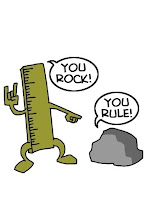SIMPLE PRESENT TENSE
SUBJECT + VERB = AFFIRMATIVE
I like popcorn.
She likes him.
He reads the newspaper every day.
SUBJECT + DON’T/DOESN’T + VERB = NEGATIVE
I don’t like to read.
She doesn’t speak German.
They don’t go to school every day.
DO/DOES + SUBJECT + VERB = INTERROGATIVE
Do you play soccer every day?
Does he speak English?
Does she like rock music?
*IT IS USED TO DESCRIBE AN ACTION THAT GOES ON EVERY DAY OR ALL THE TIME.
PRESENT CONTINUOUS TENSE
*IT IS USED TO DESCRIBE AN ACTION THAT IS HAPPENING AT THE TIME OF SPEAKING.
SUBJECT + VERB TO BE + VERB+ING = AFFIRMATIVE
I am reading a book now.
Tom is speaking with his brother.
They are studying at the moment.
SUBJECT + VERB TO BE NEGATIVE + VERB+ING = NEGATIVE
I am not cooking now.
We are not studying Spanish.
She isn’t reading a magazine.
VERB TO BE + SUBJECT + VERB+ING = INTERROGATIVE
Are you studying Math?
Is she going to school now?
Are they working?
SIMPLE PAST TENSE
*IT IS USED TO DESCRIBE AN ACTION THAT HAPPENED AT A DEFINITE TIME IN THE PAST.
SUBJECT + PAST SIMPLE VERB = AFFIRMATIVE
I went to Miami last month.
She played cards with me yesterday.
They bought a red car.
SUBJECT + DIDN’T + VERB = NEGATIVE
I didn’t play volleyball last Sunday.
He didn’t enjoy the party.
Susan didn’t buy a new dress.
DID + SUBJECT + VERB = INTERROGATIVE
Did you go to the beach?
Did he come here yesterday?
Did we invite Peter to the party?
TO BE (PAST TENSE)
SUBJECT + WAS/WERE = AFFIRMATIVE
John was at Jane’s party.
They were here last class.
I was at school in the morning.
SUBJECT + WASN’T/WEREN’T = NEGATIVE
I wasn’t interested in the book.
She wasn’t at home last night.
You weren’t at YES yesterday.
WAS/WERE + SUBJECT = INTERROGATIVE
Was she here last night?
Was he afraid of dogs?
Were you happy?
SIMPLE FUTURE
*IT IS USED FOR FUTURE ACTION.
SUBJECT + WILL + VERB = AFFIRMATIVE
I will invite Mary to my party.
John will go to Miami.
She will organize the meeting.
SUBJECT + WON’T + VERB = NEGATIVE
Susan won’t buy a new car.
I won’t come to YES tomorrow.
He won’t be here next week.
WILL + SUBJECT + VERB = INTERROGATIVE
Will you come tomorrow?
Will she go to New York?
Will he invite me?
PRESENT PERFECT
1) IT DESCRIBES AN ACTION THAT HAPPENED AT AN INDEFINITE TIME IN
THE PAST.
2) IT ALSO DESCRIBES AN ACTION THAT WAS REPEATED SEVERAL TIMES IN
THE PAST.
3) IT DESCRIBES AN ACTION THAT HAPPENED IN THE PAST AND HAS
CONTINUED UP TO THE PRESENT.
SUBJECT + HAVE/HAS + PAST PARTICIPLE(VERB) = AFFIRMATIVE
1) I have bought a car
2) She has been to Europe several times.
3) They have worked here since 1985.
SUBJECT + HAVEN’T/HASN’T + PAST PARTICIPLE(VERB) = NEGATIVE
1) I haven’t lost my wallet.
2) He hasn’t been to that restaurant many times.
3) You haven’t studied English for 2 years.
HAVE/HAS + SUBJECT + PAST PARTICIPLE(VERB) = INTERROGATIVE
1) Have you read this book?
2) Has she come here several times?
3) Has he worked there since 1990?
PAST CONTINUOUS
SUBJECT + WAS/WERE + VERB+ING = AFFIRMATIVE
1) IT IS USED TO SAY THAT SOMEONE WAS IN THE MIDDLE OF AN ACTION AT A CERTAIN TIME IN THE PAST.
I was living in Brazil in 1990.
They were having breakfast at 7 o’clock.
She was watching TV yesterday night.
2) IT IS ALSO USED TO SAY THAT ONE ACTION WAS HAPPENING WHEN ANOTHER ACTION HAPPENED.
We were going home when it began to rain.
She was driving madly when the accident happened.
They were leaving home when I arrived.
SUBJECT + WASN’T/WEREN’T + VERB+ING = NEGATIVE
1- She wasn’t waiting for him last night.
2- We weren’t having dinner at 8 o’clock.
3- He wasn’t reading a book when I phoned.
4- I wasn’t cooking when she arrived.
WAS/WERE + SUBJECT + VERB+ING = INTERROGATIVE
1- Was he living in the U.S.A. last year?
2- What were you doing last night?
3- Was she living in England when the war broke?
4- What were they doing when it began to rain?
PAST PERFECT
IT IS USED WHEN WE ARE TALKING ABOUT THE PAST AND WE WANT TO MENTION AN EARLIER PAST ACTION. THERE ARE 2 ACTIONS IN THE SENTENCE: ONE IS PAST SIMPLE AND THE OTHER IS PAST PERFECT
( NOT NECESSARILY IN THIS ORDER ).
I met her after I had left the office.
They had left when I arrived.
She discovered that I had used her car.
SUBJECT + HADN’T + PAST PARTICIPLE OF THE VERB = NEGATIVE
They hadn’t left when I arrived.
She hadn’t studied for the test when her friend phoned.
HAD + SUBJECT + PAST PARTICIPLE OF THE VERB = INTERROGATIVE
Had you finished your homework when your mother phoned?
What had she studied when the teacher arrived?
NOTE: PAST PERFECT IS ALSO THE PAST FORM OF THE PRESENT PERFECT.
PRESENT: The house is dirty. I haven’t cleaned it.
PAST : The house was dirty. I hadn’t cleaned it.
























































Sem comentários:
Enviar um comentário